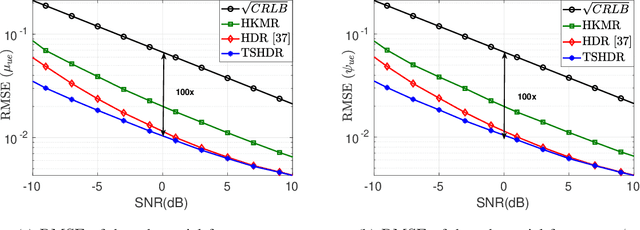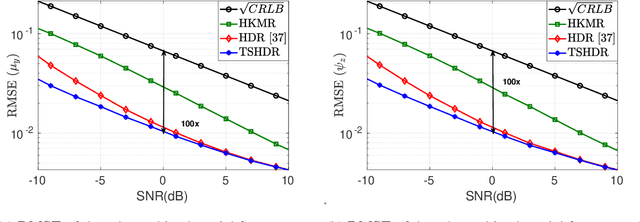Two-Dimensional Channel Parameter Estimation for IRS-Assisted Networks
Paper and Code
May 07, 2023



This paper proposes a pilot decoupling-based two-dimensional channel parameter estimation method for intelligent reflecting surface (IRS)-assisted networks. We exploit the combined effect of Terahertz sparse propagation and the geometrical structure of arrays deployed at the base station, the IRS, and the user equipment to develop a low-complexity channel parameter estimation method. By means of a new pilot design along the horizontal and vertical domains, the overall channel parameter estimation problem is decoupled into different domains. Furthermore, with this decoupling, it is possible to simultaneously sense/estimate the channel parameters and to communicate with the sensed node. Specifically, we derive two estimators by decoupling the global problem into sub-problems and exploiting the built-in tensor structure of the sensing/estimation problem by means of multiple rank-one approximations. The Cram\'er-Rao lower bound is derived to assess the performance of the proposed estimators. We show that the two proposed methods yield accurate parameter estimates and outperform state-of-the-art methods in terms of complexity. The tradeoffs between performance and complexity offered by the proposed methods are discussed and numerically assessed.
 Add to Chrome
Add to Chrome Add to Firefox
Add to Firefox Add to Edge
Add to Edge